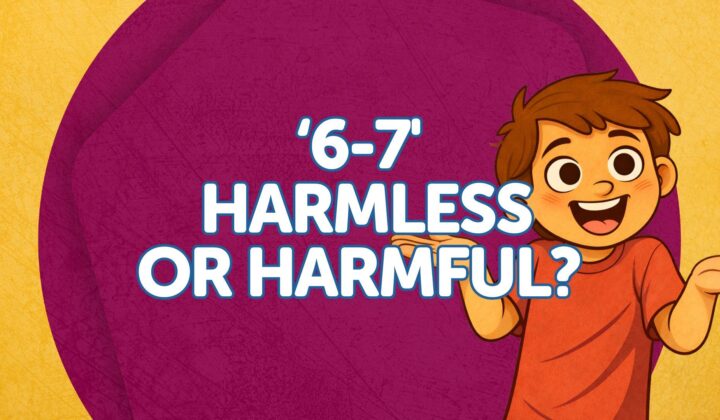Learn more about the journey that led to us equipping kids to carefully evaluate every idea they encounter.
Meet members of our team who have contributed to curriculum development.
Hear from real users of the Foundation Curriculum.
Learn what we believe about God, Jesus, Scripture, and more.
When Kids Walk Away from Faith
Today's question says, "what is your advice for parents of children who have walked away from the faith? My neighbor's 13 year old has stated she doesn't believe in God anymore and wants nothing to do with her parents' faith."
Transcript
Note: The following is an auto-transcript of the podcast recording.
Hello friends, and welcome to another episode of the Foundation Worldview podcast where we seek to answer your questions so that you can equip the children that God has placed in your care to carefully evaluate every idea they encounter and understand the truth of the biblical worldview. I'm your host, Elizabeth Urbanowicz, and I'm thrilled that you've joined me for another episode today. Today's question says, what is your advice for parents of children who have walked away from the faith? My neighbor's 13 year old has stated she doesn't believe in God anymore and wants nothing to do with her parents' faith. Really good question and one that I know that is so personal for so many of the people who are listening. So that's what we're going to dive down deep into today.
Just as a reminder, if you found the content of this podcast beneficial would ask that you consider liking and subscribing to make sure that you never miss a future episode, and also ask that you would consider writing a review so that others can find this content and can really learn how to equip the kids and their care to think well.
Now, when we think about children who have stated that they are no longer in the faith, that they don't believe in God's existence or they don't believe that the Bible's true, or they don't believe that Jesus is the only way to God, the first thing that we need to focus on is building relationship. Now I know that when a child comes and says these types of things, it's really, really difficult not to freak out. It's really difficult not to feel overwhelmed because it is such a discouraging thing because as Christians, we genuinely believe that our only hope in life and death is in Jesus Christ. And so to hear our children, our child who we love, who we want nothing more for that child than to be reconciled in their relationship with God, to hear them say that they don't believe that that is true, that's just devastating, especially when we've been spending their whole childhood trying to raise them up to understand the truth and the goodness and the beauty of the gospel of Jesus Christ.
And so the first thing that I would say is it is going to be a shock. It is going to be a huge blow, to just make sure that we remain calm in that moment, that we don't freak out, that we don't try in that moment to reason in every which way we can with them, to understand that this journey with them from this point on is going to continue to be a marathon and not a sprint. So first, we need to make sure that we don't freak out that our focus is on continuing to build relationship with them because we want to make sure that we have a solid relationship established, that they know they can always come to us, that we love them, whether they are loving Jesus and knowing him and following him, or whether they are completely turned away from him because love, true love is based on the character of the person who is doing the loving, not on the object or person which is receiving that love.
So we want them to know that our love for them is not going to change. And now something to really think through that a lot of times when teens specifically make a very loud and pronounced declaration that they don't believe in God anymore, that they don't want anything to do with the faith, usually more likely than not that is an issue of the heart, not an intellectual one. Now, we may have children who have genuine questions about the faith and just if they're intellectual questions that they're wrestling with. And if that's the case, then we need to affirm that we're so proud that they're good thinkers, that we're so happy that they're critically thinking through what biblical faith is, and whether or not they think that it's accurate. We need to affirm that and then we can help them guide them as they're wrestling through these questions.
But when a teen just comes out and says, "nope, I don't believe in God anymore. I want nothing to do with this. I don't want to go to church anymore," all this kind of stuff. More often than not, it's a heart issue rather than an intellectual one. And so obviously whenever a child states that they're walking away from what they've been taught all throughout their growing up years, that one of the main things that we need to do is pray for them. We need to pray that God would be pursuing this child, that God would show him or her weight of their sin, and that the only solution to that sin is found in Jesus. We also need to be praying that if there are these intellectual doubts that God would give us wisdom and that we would be able to help our kids find answers to them.
We also need to be praying that God would be softening this child's heart. Now, as I said, if a child very loudly pronounces that they're no longer a Christian or they never have been one, they don't believe in God's existence, it's usually a heart issue more than an intellectual one. And so the first thing that I would encourage parents to do is after this declaration has been made, that the parents spend time praying that God would reveal any ways in which they have sinned against their child. Because the fact of the matter is in families, we're going to sin against one another more than we're going to sin against anyone else because we're in close quarters and life is stressful and there is no such thing as a perfect person on this side of Genesis 3. The only perfect human who also lived was not just fully human, but was also fully God. Jesus is the only perfect one who has ever lived and walked this earth.
And we're going to sin against our children. It's going to happen now, we're going to be praying that as God continues this sanctification process in our lives, that each year we're going to be sitting against our children and against others a little less, but it's going to happen because we're sinners and we're living in tight quarters. And what sin does is sin cuts down relationship. We see that immediately in Genesis three, that as soon as Adam and Eve eat from the fruit of the tree, their relationship with one another is immediately broken. Immediately they recognize that they're naked and they go and they hide from one another. So immediately their relationship with one another is broken. When God comes and walks in the garden, they find out their relationship with God has been broken, they run and they hide from God.
And then when God confronts them on their sin, we see that even their relationship with themselves is broken, that rather than confessing and admitting and repenting of their sin, they start to shift the blame. And sin always cuts down relationship. And so we need to be very specific in praying, God, is there something specific that I have done, whether it's been a single act or repeated action or word or thought over time that has created a division between myself and this child that you have placed in my care. And so that might sound like a strange first step, but if we want to help our children understand the truth of who God is, we need to make sure that we are walking in truths ourself. We need to make sure that we are confessing and repenting of our sin and that we don't have anything hindering our relationship with God or our relationship with this child that he has placed in our care.
Now, I saw this very clearly in my own classroom when I was teaching that there was a girl in my class, it was my last year of teaching that I just could not make a connection with. Now, this wasn't a situation where she told me she'd walked away from the faith or anything. Usually eight and nine year olds aren't in that place yet. But I just couldn't connect with her. And as I was praying through just saying, God, please show me how I can make a relationship with her, how she can know can show her that I love her. And what the Holy Spirit brought to mind was a very specific situation in which I had disciplined her. She had done something in front of the class. She had disrupted the class in a very big way that was not appropriate. And I had reprimanded her in front of the whole class in a way that was very demeaning rather than just pulling her aside, talking with her about what she had done and giving her a consequence, a punishment for the way that she had sinned against me as sinned against the rest of the students in the class through that disruption, I had embarrassed her in front of the whole class while I was punishing her.
And that's what kept coming to mind. And I just thought, "oh, God, that's not really a sin. She publicly disrupted the whole class in this way. I needed to publicly punish her so that the class could see that." But the Holy Spirit just kept bringing to mind. And I just kept sensing, no, you didn't do that in a way that honored me or that honored her, that I wasn't actually treating her with the respect that she deserved as an image bearer of the holy God. So finally, after a few weeks of this conviction, I was like, okay, Lord, you're making this clear that this is sin. I need to repent before you. I need to repent before her.
And so I just pulled her aside one day and I said, "hey, do you remember that day when you did this? And then I punished you in this way?" And immediately she bursts into tears and started crying. And I was like, oh my goodness. Clearly this has been weighing on her heart so heavily. And I confessed and repent. I said, "you know what?" I said, "what you did was wrong, and I needed to punish you for that because it was wrong." I said, "but the way in which I punished you did not honor God." I said, "I was not treating you like you were an image bearer of God. I sin against you by the way that I treated you, and I am so sorry for that. Will you forgive me for that?"
And she did. She forgave me. And it wasn't like immediately we had this amazing close relationship. But after that, slowly over time, I was able to develop a positive relationship with that child. So would just really encourage you if you're in this position where your child has very vocally said that they're walking away from the faith that you pray, that God would give you wisdom if there's anything that you need to confess and repent of. And I say if kind of jokingly because we're all sinners. So yes, there's always things we need to confess and repent of.
And then also directly ask your child, say, I've been praying about this and God has been bringing this to mind and confess and repent of that. Is there anything else that I've done that have really perceived as being a sin against you directly? Ask your child that so that you can confess and repent of that and restore a relationship with your child. Now, you may be thinking something that your child brings up. It may have just been something that bothered him or her. It might not have been an actual way in which you sinned against him or her. They might say that you punish them when they did something. And you might say, "I have to punish you as your parent. That's my responsibility. But I'm so sorry that the way that I did this made you feel X or Y."
And just understand that your children's expectations for you relationally will be different than their expectations for anyone else in their life. And this is actually a God-given thing because as their parents, your job is to reflect the heart of God as a father to your child, that no one else in your child's life has been given the responsibility of reflecting God's father heart to your child. And so they rightly have different expectations and higher expectations for you. Now, sometimes their expectations might be unrealistic, and you'll have to recognize that you're not called to meet unrealistic expectations, but you are called to reflect God to them in a way that no one else in their life has been called to reflect that. So that's the first thing that I would recommend is that you confess any ways in which you have sinned against your child and repent of that.
And then after that, continue to develop a positive relationship with your child. Now, I know that in this very short podcast, there's not enough time to go in the ins and outs of how do you actually develop a positive relationship with your child. And so I would recommend two resources that I just highly recommend to anyone working with children. These resources even helped me as I was a teacher. The first is a series called Visionary Parenting that's put out by Visionary Family Ministries. So highly recommend that you check out the teaching series, Visionary Parenting. That's put out by Visionary Family Ministries. That's run by Dr. Rob and Amy Reno. And then a second series is Getting To The Heart of Parenting by Paul David Tripp. Both of these parenting series will really help you think through where your child's at developmentally, how do you really build a strong biblically based relationship with that child?
And then once you've worked on these relational things, would really encourage you to just ask your child questions to really understand where is their disbelief or their rebellion in walking away from this faith? Where is it coming from? Just have questions and say, "I'm going to respect the fact that you don't believe that God exists anymore. I still believe that he does. That hasn't changed my faith at all, but I'd just love to learn from you. Why don't you believe God exists anymore?" To be able to ask questions. Now, depending on how hard of a heart your child has, they may not respond at all. They may respond in anger, they may walk away. But to just ask some questions, not to try to bait them, not to try to back them into a corner, but just so that you can gather more information. So you know the kind of conversations to have in the future and how you can be praying for them.
So that would be my top two recommendations. Okay. First, focus on building a strong relationship with that child, which starts with confession and repentance from ways in which you have sinned against your child. And then after that, to just ask some good questions. Why is it that you don't believe in God anymore? When did these questions and doubts start? Is there anybody else in your life that you feel like has been a strong influence in this belief that God doesn't exist anymore? Are there any things that I could do that would be helpful as you are continuing to wrestle through what you believe, just asking questions to glean information so that you know how to move forward in conversations with your child and how to move forward in prayer for him or her?
Well, that's a wrap for today's episode. As always, my prayer for you as we leave our time together is that God would richly bless you as you continue to faithfully disciple the children that He's placed in your care. I'll see you next time.
Related Posts and insights

What Should I Do When My Child Is Crushed by Their Sin?
Help your child process grief over sin biblically. Learn the 5-part arc of identity—from image bearer to sanctification—that gives kids hope and context.

Affirm the Questions of the Children You Are Teaching
Affirm children’s questions to foster curiosity and lifelong learning. Discover a simple, biblical strategy for building a love of learning.

How Should Christians Respond to the "6 7" Trend? Helping Kids Think Biblically About Cultural Phrases
How should Christian parents handle the "six seven" trend? Learn to avoid the genetic fallacy and guide your kids to think biblically about cultural phrases.





